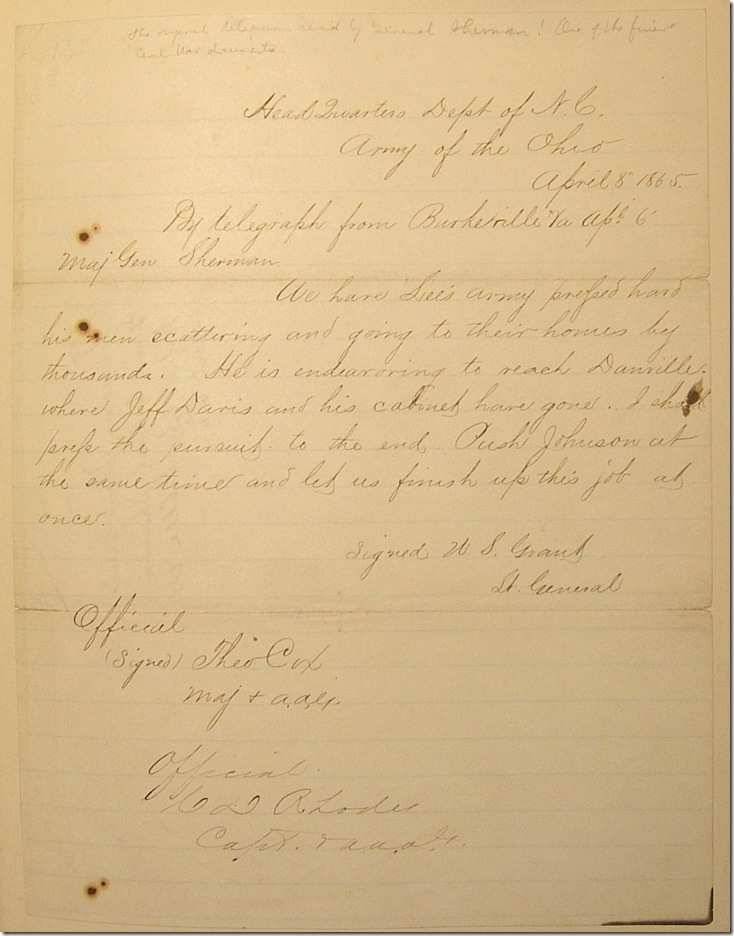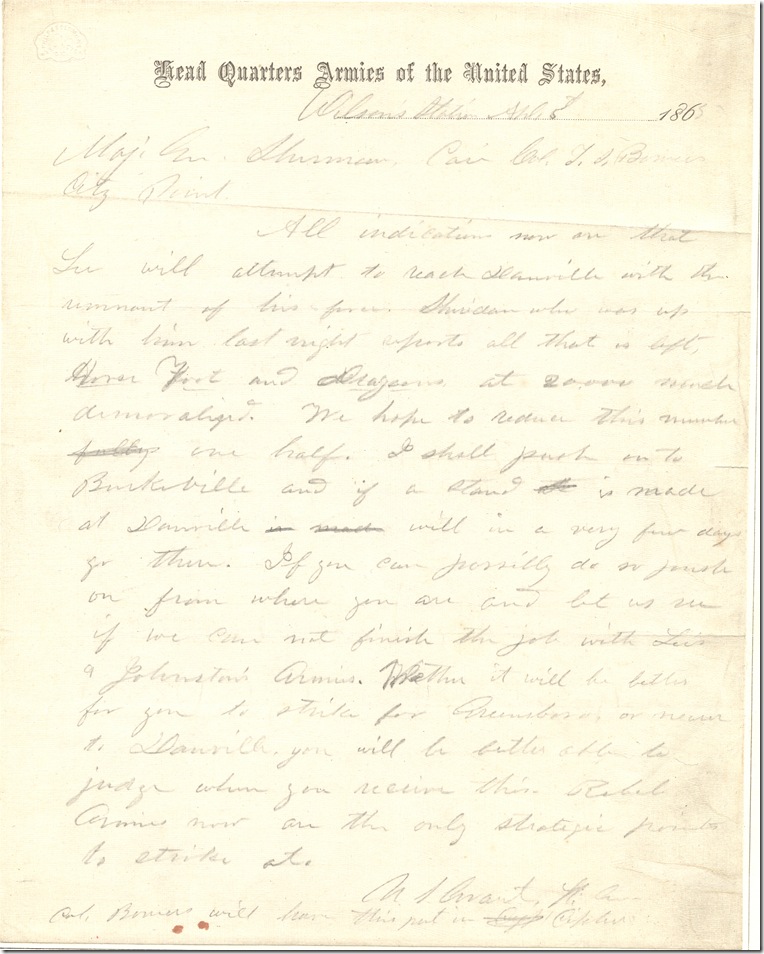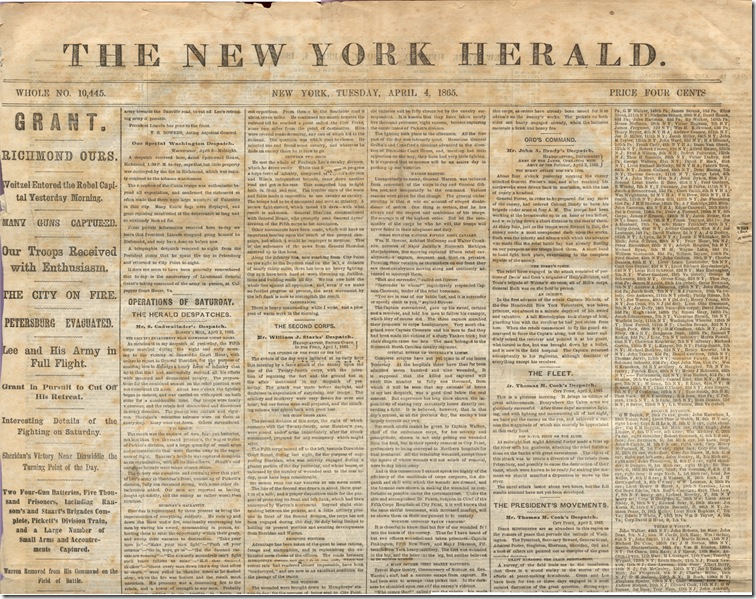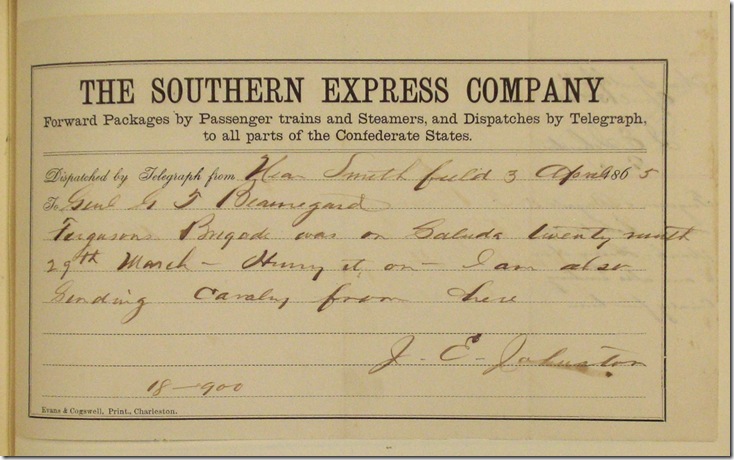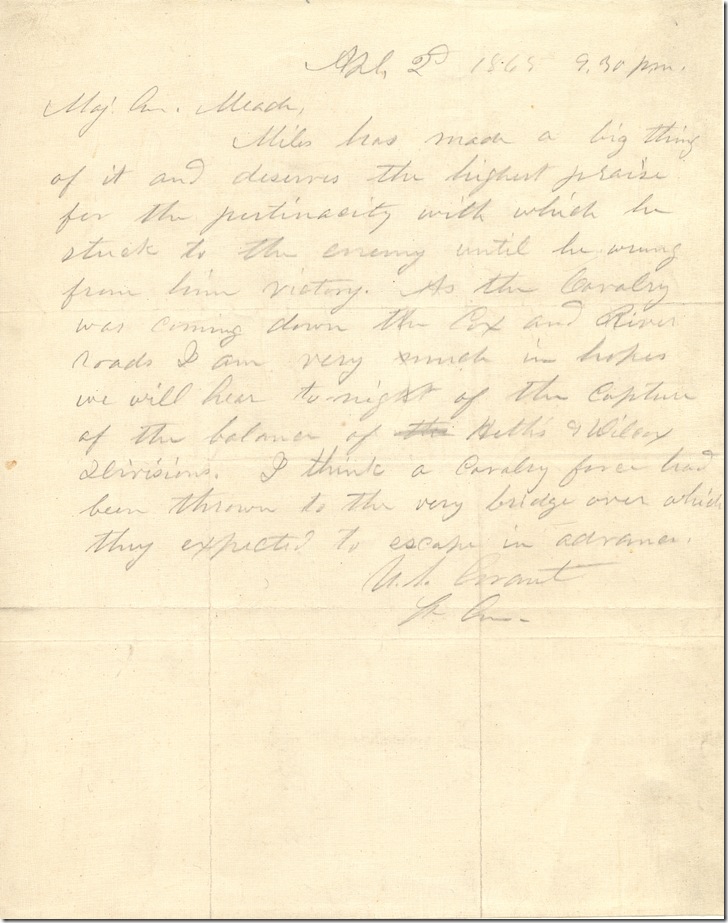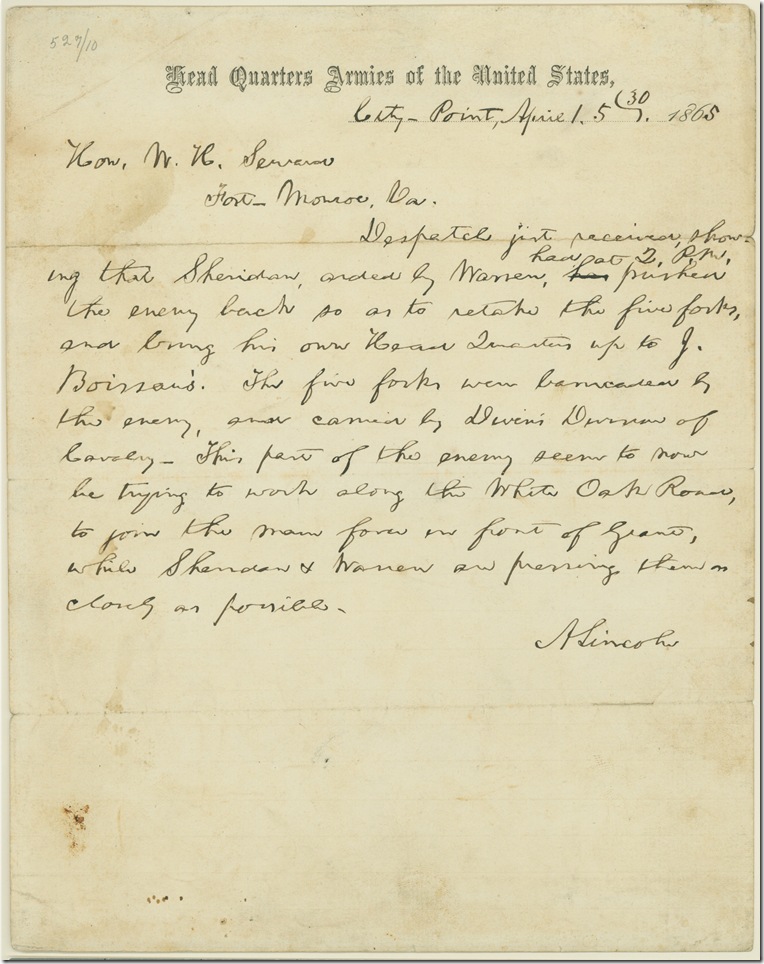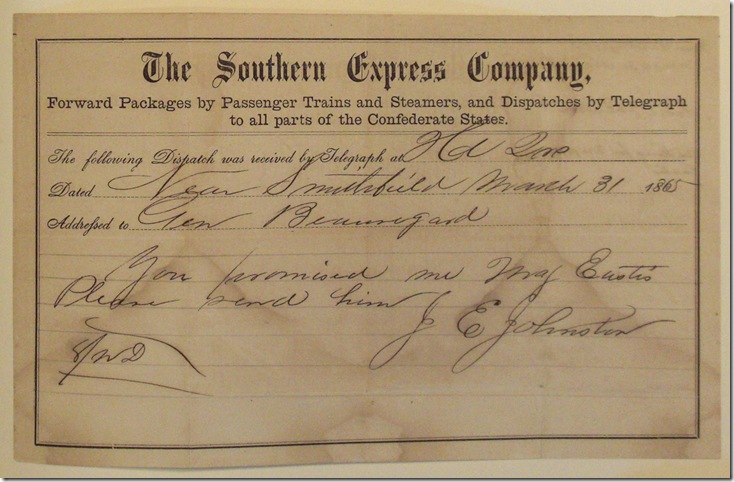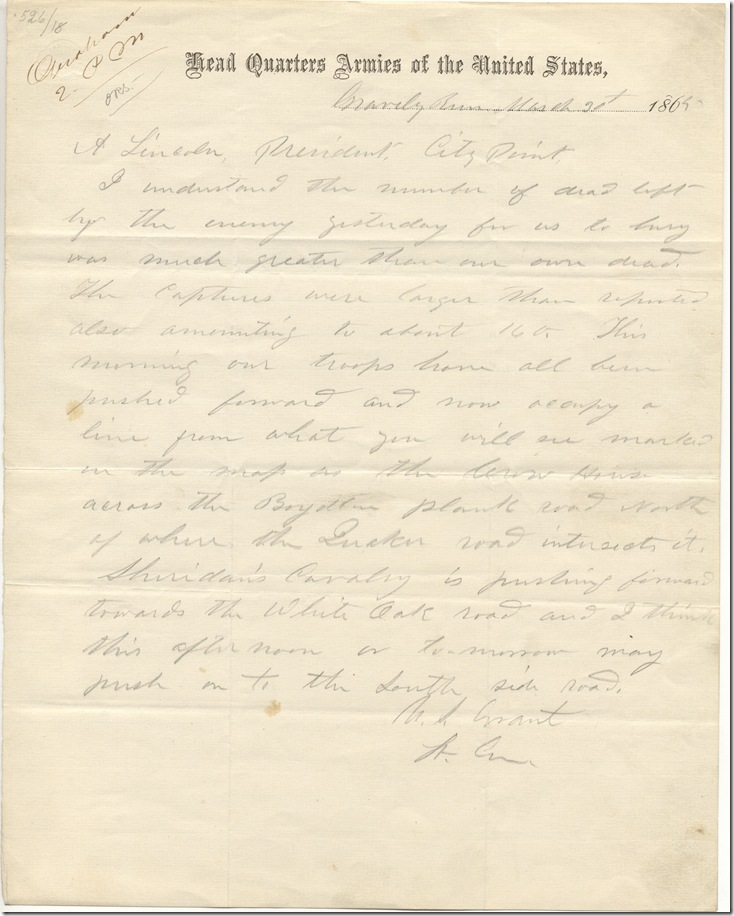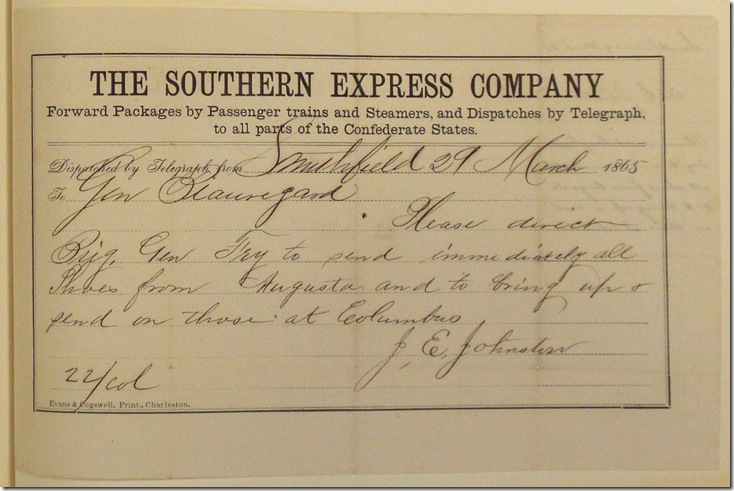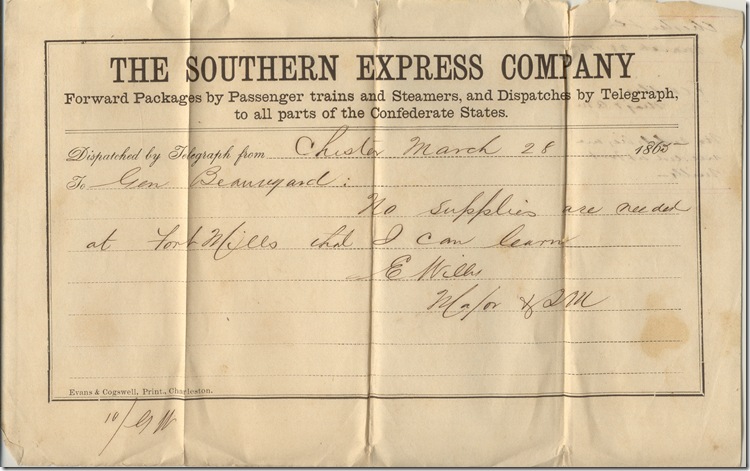Transcript:
Head Quarters Dept. of N.C.
Army of the Ohio
April 8” 1865.
By telegraph from Burkeville Va Apl. 6”
Maj. Gen Sherman
We have Lee’s army pressed hard his men scattering and going to their homes by thousands. He is endeavoring to reach Danville where Jeff Davis and his cabinet have gone. I shall press the pursuit to the end. Push Johnson at the same time and let us finish up this job at once.
Signed U. S. Grant
Lt. General
Official
(Signed) Theo Cox
Maj. & A.A.G.
Citation: Ulysses S. Grant (1822-1885), autograph letter signed to William T. Sherman. Burkeville, Va.; 8 April 1865. AMs 435/8.13
